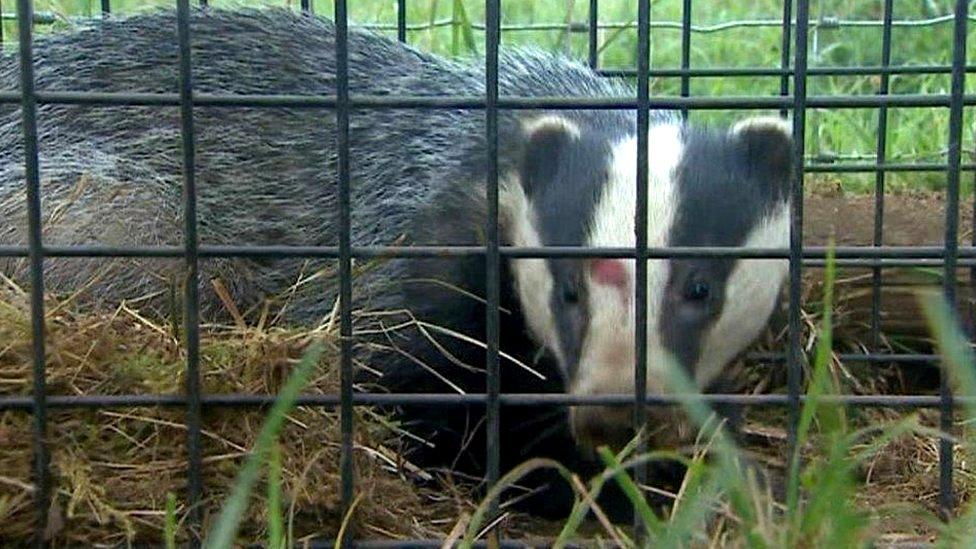Bovine TB: Swansea City Football Club joins badger pilot
- Published
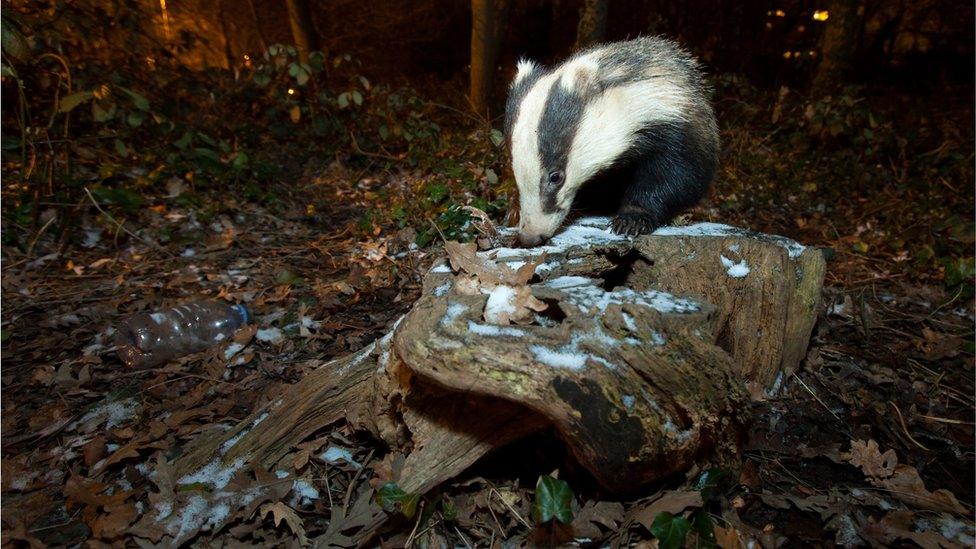
The Welsh Government has ruled out any culling of badgers, as is happening in parts of England
Swansea City Football Club and caravan park owners are helping fund badger vaccinations as a pilot project to eradicate bovine TB on the Gower peninsula.
Hundreds of badgers will be vaccinated over a four-year period, and there will also be measures to reduce the risk of cattle becoming infected.
A third of the funding comes from the Welsh Government.
Ministers rule out widespread badger culling as seen in parts of England.
Dafydd Saunders Jones, chairman of the South East Wales TB Eradication board, said the project was the only one he knew of which involved all members of the community, from farmers and vets to landowners including Swansea Council, the football club, caravan parks and Gower Heritage Centre.
"Bovine TB has many impacts - on tourism, farmers' mental health and the environment around us - people understand that and that's why they're keen to work with us," he said.
Swansea City FC said its Fairwood training ground was "in the heart of the Gower common" adding that the club "has seen for itself the devastating effect bovine TB has had on the farming community".

The Gower peninsula is the "perfect location" for trialling new ways of tackling the disease, according to a vet helping to lead the project
Local vet Ifan Lloyd, who is one of those leading the project, said that Gower's geography meant it was the "perfect location" to trial approaches to tackling the disease.
"It is surrounded by sea and then has the city of Swansea at one end - it's effectively an island," he said.
"But also it has a history with TB - it's been a problem here since 1994, with disease rates that are more than twice the national average."
The aim is to reach 70% of Gower's badger population, which has been estimated at between 600 and 1,200 animals.
The team has already carried out vaccinations at six badger setts on the land of beef farmer Alan Lloyd.
"Millions of pounds are paid out in compensation for farmers whose cattle are taken away because of TB - couldn't that money be better spent?" he said.
"And it's not just the money, it's the stress that TB causes on farms."
The badger vaccinations are the first phase of the project, followed by a farmer engagement programme that will include enhanced cattle surveillance, biosecurity and risk management.
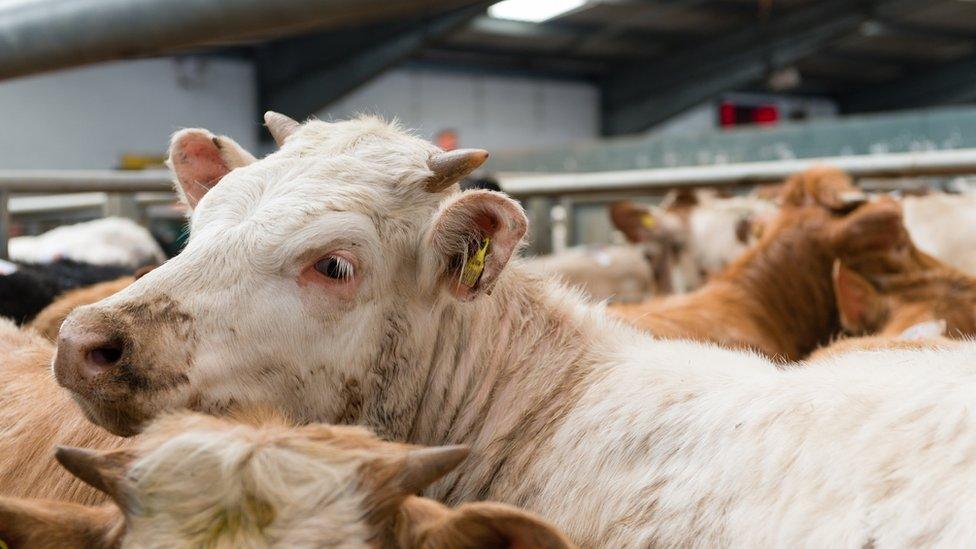
The team is also hoping to trial new diagnostic tests on cattle
Vaccination of cattle is not a solution, because the current tests for bovine TB cannot distinguish between infected and vaccinated animals.
The team is hoping to trial new diagnostic tests on cattle in the area too, working with universities in Aberystwyth, Cardiff and Warwick.
Meanwhile leading scientists, farmers and vets will focus on developments in diagnosing the disease when they gather later for the first annual bovine TB conference at Aberystwyth University.
Latest figures show 11,977 cattle in Wales were slaughtered due to bovine TB in the 12 months to April 2019 - a 19% increase on the previous year, and the highest number of slaughtered cattle in 10 years.
But Christianne Glossop, chief veterinary officer for Wales, said the number of cases has been falling.
"Over the last 10 years we've seen a 37% reduction in the number of new TB breakdowns," she said.
"Now that's great news unless you're one of the 699 farms which right now are having a TB breakdown.
"You can pick out stats which make things look very positive but we've got to crack on now and stop all breakdowns."
- Published18 July 2019
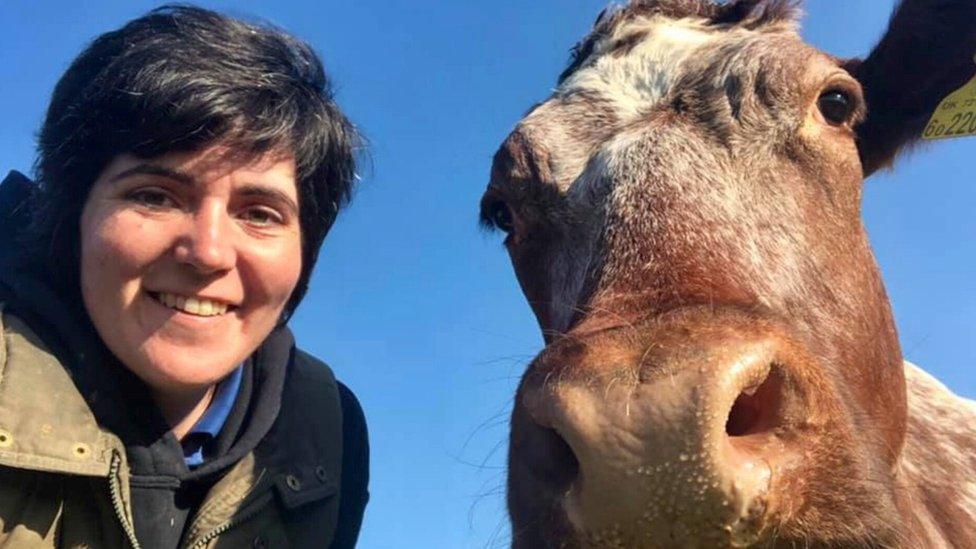
- Published30 April 2019
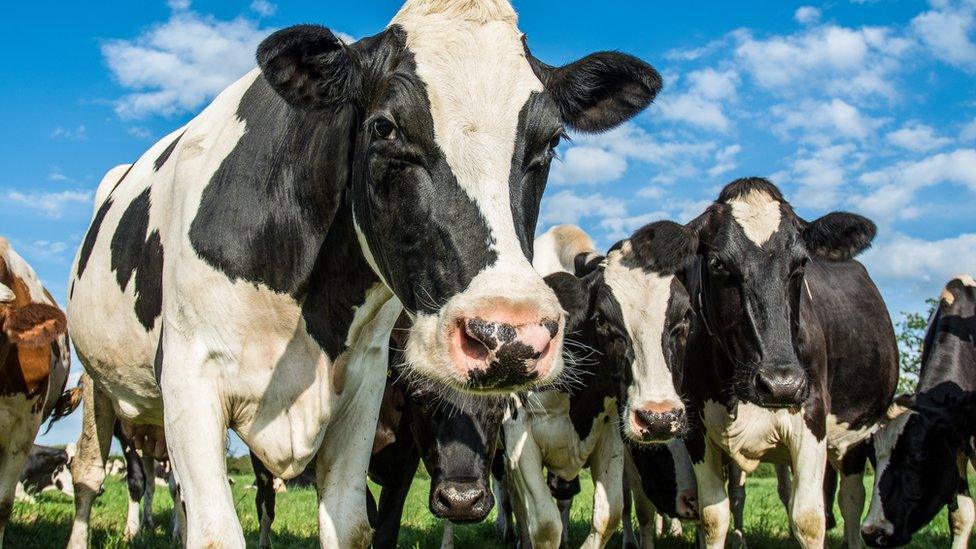
- Published10 January 2019
